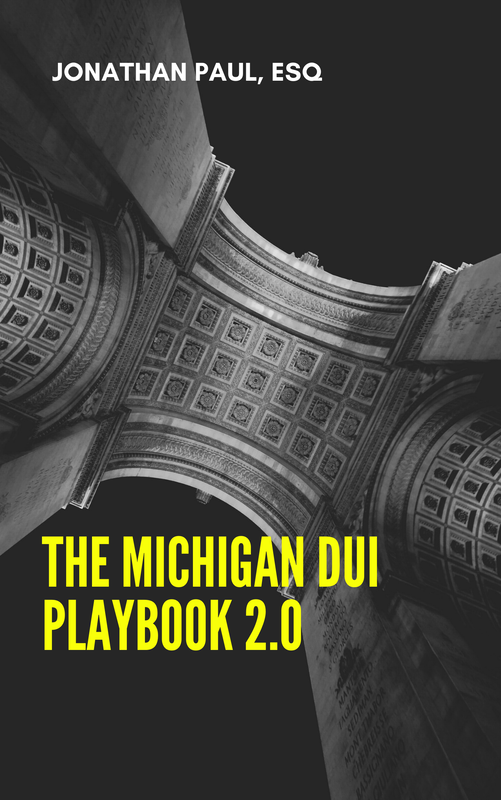Big Rapids Drunk Driving - Mecosta CountyBeing charged with a drunk driving offense in Mecosta County, Michigan, can be a complex and challenging process. The 77th District Court, presided over by Honorable Peter M. Jaklevic and Honorable Tyler O. Thompson, plays a key role in this journey. Understanding the expectations and potential concerns of these judges can help those charged with such offenses navigate the process more smoothly.
Pre-Arraignment vs Post-Arraignment Clients charged with drunk driving often come to me either pre-arraignment or post-arraignment. An arraignment is a formal reading of a criminal charging document where the defendant hears the charges and enters a plea. For clients who have not yet been arraigned, I often recommend implementing our own bond conditions. This is in anticipation of what Judges Jaklevic or Thompson might order. Such a proactive approach demonstrates our seriousness when we appear before the judges. For those clients who have been arraigned, we discuss their adherence to those bond conditions and often add further proactive measures. Risk Assessment and Bond Conditions When setting bond in a drunk driving case, the presiding judge is required by Michigan law to consider both the risk of the defendant fleeing and the potential danger to the public. While most DUI defendants do not pose a flight risk, there is a potential risk of them re-offending by consuming alcohol or drugs while out on bond. To mitigate these risks, bond conditions often mandate the defendant to abstain from using drugs or alcohol, and this compliance is often monitored. This can go a long way in alleviating the court's concerns and can often result in the defendant being granted a personal or nominal bond. Determining Appropriate Bond In assessing the appropriate bond, the judges consider several factors, including: The defendant’s prior criminal record The defendant’s record of appearing or failing to appear at court proceedings The defendant’s history of substance abuse The defendant’s mental condition, including character and reputation The seriousness of the offense, the presence or absence of threats, the probability of conviction, and likely sentence The defendant’s employment status and financial history The availability of responsible members of the community who would vouch for or monitor the defendant The defendant’s ties to the community, including family ties and relationships, length of residence Any other facts bearing on the risk of nonappearance or danger to the public Alcohol Testing: A Common Bond Condition Alcohol testing is usually a primary bond condition in drunk driving cases at the 77th District Court. Even if it hasn't been court-ordered, my clients often choose to undergo proactive alcohol testing to display their commitment to sobriety. We work together to determine the most effective and least disruptive method of testing. For clients who prefer not to follow the standard court-ordered testing routine, we set up alternative testing schedules that fit better with their lifestyle and still achieve the court’s objective. Here are some of the most common testing methods: Preliminary breath tests (PBTs): This common and inexpensive method requires the defendant to visit a testing facility and provide a breath sample, usually daily or several times per week. Transdermal alcohol tethers: These devices continuously monitor alcohol consumption by testing the perspiration on the skin. They are more expensive but offer greater convenience for the defendant and a more comprehensive monitoring method for the court. In-home Breathalyzers: These devices, which plug into a wall socket, are equipped with a camera to verify the user’s identity. Some newer models feature cellular connectivity, continuously transmitting results and eliminating the need for data downloads. Ignition interlock devices: These devices are installed in a vehicle and require the driver to perform a breath test before the vehicle can be started. Ethyl glucuronide (EtG) or Ethyl sulfate (EtS) alcohol testing: These tests measure alcohol metabolites in the urine, detecting alcohol consumption for up to 72 hours prior to the test. This method is ideal for defendants with irregular schedules or those who travel frequently. Understanding and complying with bond conditions is a crucial part of dealing with a DUI charge. My role as an attorney is to guide my clients through this process, ensuring that they comply with court expectations and maintain their best possible stance throughout the case in the 77th District Court. Comments are closed.
|
Click to Email Me Categories
All
|
Ann Arbor Office LocationPlymouth Office Location |
Representing DUI Clients in MichiganRepresenting clients charged with a DUI in Ann Arbor, Canton, Brighton, Howell, Saline, Adrian, Taylor, Plymouth, Northville, Westland, Ypsilanti, Pittsfield Towsnhip, Warren, Sterling Heights, Farmington, Pontiac, Romulus, Lansing, Novi, South Lyon, Southfield, Birmingham, Bloomfield Hills, Royal Oak, Troy, Rochester, Jackson, East Lansing, Garden City, Livonia, Dearborn, Detroit, St Clair Shores, Hazel Park, Ferndale, Madison Heights, Waterford, Milford, Shelby Township Clarkston, Oak Park, Berkley, Fraser, Sterling Heights, Clinton Township and others throughout Washtenaw, Wayne, Monroe, Jackson, Genesee, Macomb, Ingham, Lenawee, Livingston and Oakland County.
|







